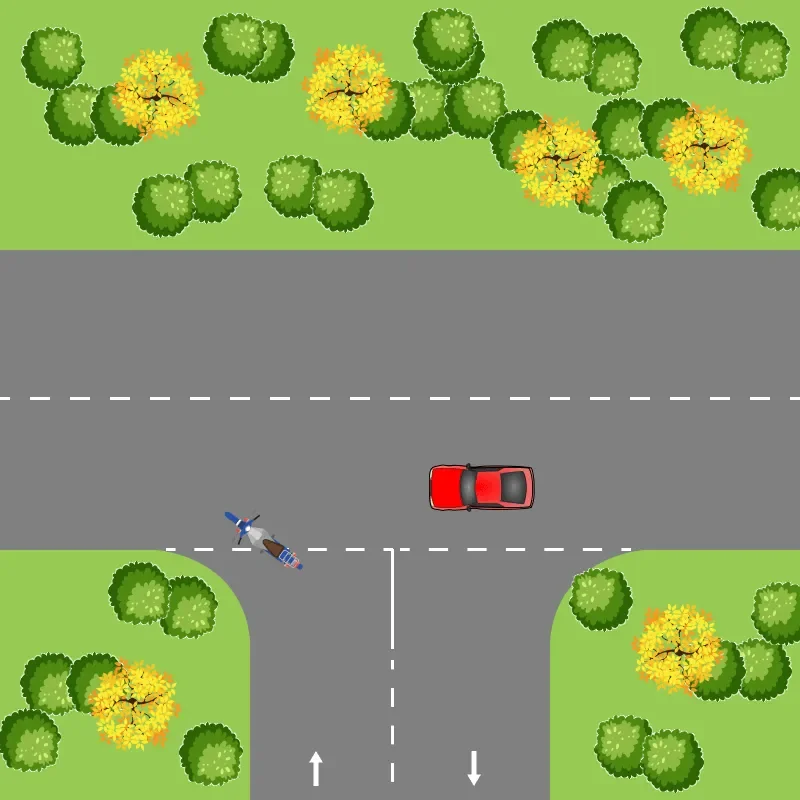Anticipation
Anticipation refers to expecting something which will or might happen on the road (any road hazard which requires slowing down the vehicle, changing direction, etc.). Steps for effective anticipation are discussed below.
- Look: It is important for you to observe the road ahead carefully. Looking further ahead will enable you to see the things in advance, and it gives you some decision time to take appropriate measures against any hazard that may occur. You should also check your mirrors and blind spots regularly to ensure safe gap. Always try to gather more information from the surroundings. The more you gather information, the more you are prepared to save yourself and onboard persons from the hazard on roads, if any.
- Assess: You should assess and judge the situation very well to identify the presence of any safety issues. If there is any hazard, think of alternative actions to be adopted in such situations.
- Decide: Finally, you should decide appropriate action based on the following questions.
- What can be seen?
- What may not be seen?
- What you can sensibly anticipate for other road users to do?
For example, while driving in the car, you can see a cyclist heading towards the intersection carelessly. After weighing the whole situation, you identify the hazard and think for an appropriate action (either stop or reduce the speed).

Finally, depending on your surroundings, you decide on which action you should take to avoid the hazard.